The Scientist

The brain genetics behind feeling sick
Infections are often associated with symptoms that aren’t directly tied to the pathogen, such as lethargy and loss of appetite ...
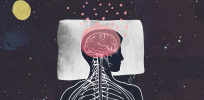
New insomnia treatments on the horizon? Different areas of the brain have unique sleep schedules, paving the way for new therapies
Dolphins can swim with one hemisphere asleep while the other is alert, and some neurons in sleep-deprived rats can “switch ...

‘Chemistry drives social chemistry’: Body odor plays a huge role in attraction and even friendship
People whose natural body odors are chemically similar are more likely to “click” and form fast friendships ...
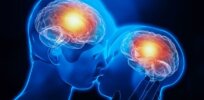
Can science explain love?
Love defies a neat definition because it is a mix of the objective and the subjective, of the biological and ...
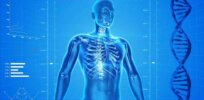
Top 10 biomedical innovations of 2021
Here are the breakthroughs and advances that, thanks to the careful consideration of our panel of independent judges, have won ...
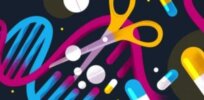
CRISPR poised to move from the research laboratory to direct patient care
Preliminary results from an ongoing trial by Intellia Therapeutics show that a CRISPR-Cas9-based drug can be delivered into the body ...
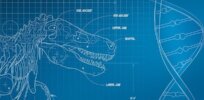
Skepticism grows over dinosaur DNA discovery claims
A team has extracted what could be DNA molecules from a 125-million-year-old fossil dinosaur, according to a study published [September ...
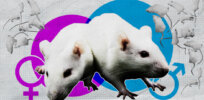
Sex bias in research: Why women are more likely to be misdiagnosed with a host of neurological conditions, ranging from autism to strokes
Unfortunately, transitioning to a scientific world where all studies include both sexes is more difficult than it seems. To accurately ...
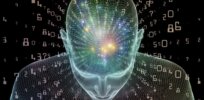
Are our brains wired for numbers?
[Cognitive neuroscientist Brian] Butterworth is one of several researchers who believe that the human brain can be thought of as ...

‘Ghost lineages’: Discovering extinct species in modern animal DNA
Either before, during, or shortly after their migration to the [Tibetan] plateau, H. sapiens got friendly with Denisovans, while their ...
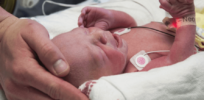
‘It’s life-creating, life-enabling’: Uterus transplants are now a reality for the lucky few, with a wider rollout soon possible
The idea of uterus transplantation to treat infertility caused by the lack of a functional uterus is less than 25 ...
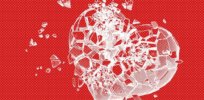
Suffering from a broken heart? It’s shocks the brain, impacts us like a mild heart attack and disproportionately affects women
Takotsubo syndrome, also known as broken heart syndrome, is a rare, reversible condition with symptoms mimicking a mild heart attack ...
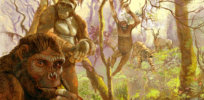
Our early human ancestors may have climbed trees and swung along branches like chimpanzees
When Texas A&M University’s Cody Prang was taking his first biological anthropology course as an undergraduate at the University of ...
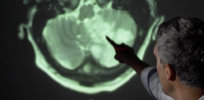
Mystery of how COVID-19 ravages the brain deepens
That SARS-CoV-2, the culprit of the COVID-19 pandemic, is also associated with neurological symptoms isn’t entirely surprising, given some evidence ...
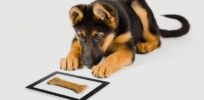
Can dogs see optical illusions too?
Psychologists use visual illusions all the time to study the shortcuts the human brain uses to extract information about the ...
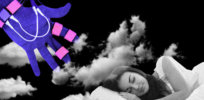
Dream engineering: Virtual reality and brain stimulation yield surprising insight into the brain
[Adam] Haar Horowitz is one of a small but growing group of researchers who call themselves dream engineers and are ...

Exploring the science and mystery of dreams
While there is a vigorous debate over whether the actual conscious experiencing of dreams while they occur serves a function, ...
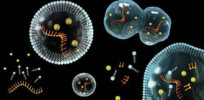
We assume life originated as a freak occurrence in a disordered, primordial soup of chemicals. Is this model wrong?
What is becoming increasingly clear is that interacting collectives of “dumb” particles can evolve into specialized structures with fine-tuned relationships ...
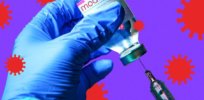
Emergency use authorizations for COVID vaccines seem like a no brainer, but they potentially pose real threats. Here’s why
The FDA can grant an [emergency use authorization, or EUA] to a drug to treat COVID-19 to facilitate the distribution ...
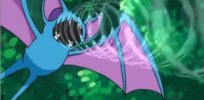
Scourge of pay-for-play predatory journals: American Journal of Biomedical Science & Research publishes Pokémon satire on COVID with Bruce Wayne quote from Gotham Forensics Quarterly
[My] paper, “Cyllage City COVID-19 outbreak linked to Zubat consumption,” blames a fictional creature for an outbreak in a fictional ...
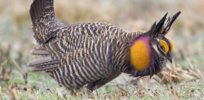
De-extinction efforts are being directed at reviving lost bird species
While efforts are underway to bring back extinct mammals, such as the woolly mammoth and quagga, through cloning, artificial insemination, ...
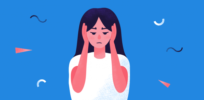
Fear and anxiety may not be as separate as we have come to believe
[It’s commonly believed that] fear is a more basal response to an immediate threat thought to be controlled by the ...
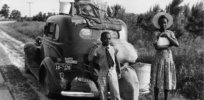
The Great migrations in the US in the first half of the 20th century show up in our genes
[Software engineer Chengzhen Dai] and his advisor, designer and engineer Carlo Ratti, teamed up with population geneticist Alicia Martin of ...
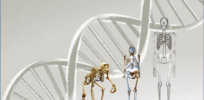
When ‘bones and stones’ are not enough: Genetics fills in the blanks in the story of human evolution
In recent years, a field that has traditionally relied on fossil discoveries has acquired helpful new tools: genomics and ancient ...

Infographic: How social isolation forced by the coronavirus affects the brain?
[B]efore COVID-19 began its global spread, millions of people were already what researchers consider to be socially isolated—separated from society, ...
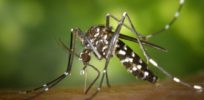
Bacteria-infected mosquitoes cut dengue cases by 77 percent, study shows
Researchers have infected Aedes aegypti mosquitoes—the species responsible for passing on many diseases—with bacteria called Wolbachia with the intent of ...

Infographic: We know breastfeeding helps children. Now we know it helps mothers too
When a woman becomes pregnant, her risk of type 2 diabetes increases for the rest of her life, perhaps because ...
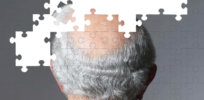
Common vaccines appear to reduce risk of Alzheimer’s and cognitive decline
[Two studies] have demonstrated that flu and pneumococcal vaccines are linked with a lower risk of Alzheimer’s disease. In both ...

